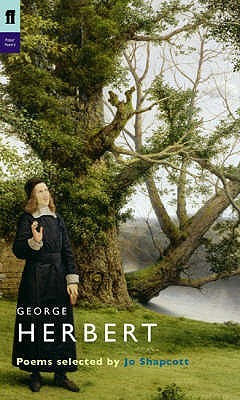George Herbert
by George Herbert
In this series, a contemporary poet selects and introduces a poet of the past. By their choice of poems and by the personal and critical reactions they express in their prefaces, the editors offer insights into their own work as well as providing an accessible and passionate introduction to some of the greatest poets of our literature.
George Herbert (1593-1633) was educated at Westminster School and Trinity College, Cambridge, where he was appointed Reader in Rhetoric in 1618 and Public Orator in 1620. He was a Greek and Latin scholar, was fluent in modern languages and an accomplished musician. In 1626 he resigned his seat in parliament and took holy orders, becoming Rector of Bemerton, a tiny rural parish on Salisbury Plain, in 1630. The TempleThe Temple, Herbert's great structure of poems from which the present selection is drawn, first appeared in 1633, the year of his death.
George Herbert (1593-1633) was educated at Westminster School and Trinity College, Cambridge, where he was appointed Reader in Rhetoric in 1618 and Public Orator in 1620. He was a Greek and Latin scholar, was fluent in modern languages and an accomplished musician. In 1626 he resigned his seat in parliament and took holy orders, becoming Rector of Bemerton, a tiny rural parish on Salisbury Plain, in 1630. The TempleThe Temple, Herbert's great structure of poems from which the present selection is drawn, first appeared in 1633, the year of his death.
BUY NOW
Paperback, 97 pages
Published March 2nd 2006 by Faber Faber
© 2026 Bibleportal.com 版权所有.

George Herbert was a Welsh poet, orator and priest. Being born into an artistic and wealthy family, he received a good education which led to his holding prominent positions at Cambridge University and Parliament.
As a student at Trinity College, Cambridge, England, George Herbert excelled in languages and music. He went to college with the intention of becoming a priest, but his scholarship attracted the attention of King James I. Herbert served in parliament for two years. After the death of King James and at the urging of a friend, Herbert's interest in ordained ministry was renewed.
In 1630, in his late thirties he gave up his secular ambitions and took holy orders in the Church of England, spending the rest of his life as a rector of the little parish of St. Andrew Bemerton, near Salisbury.
He was noted for unfailing care for his parishioners, bringing the sacraments to them when they were ill, and providing food and clothing for those in need.
Throughout his life he wrote religious poems characterized by a precision of language. He is best remembered as a writer of poems and the hymn "Come, My Way, My Truth, My Life."
... Show more